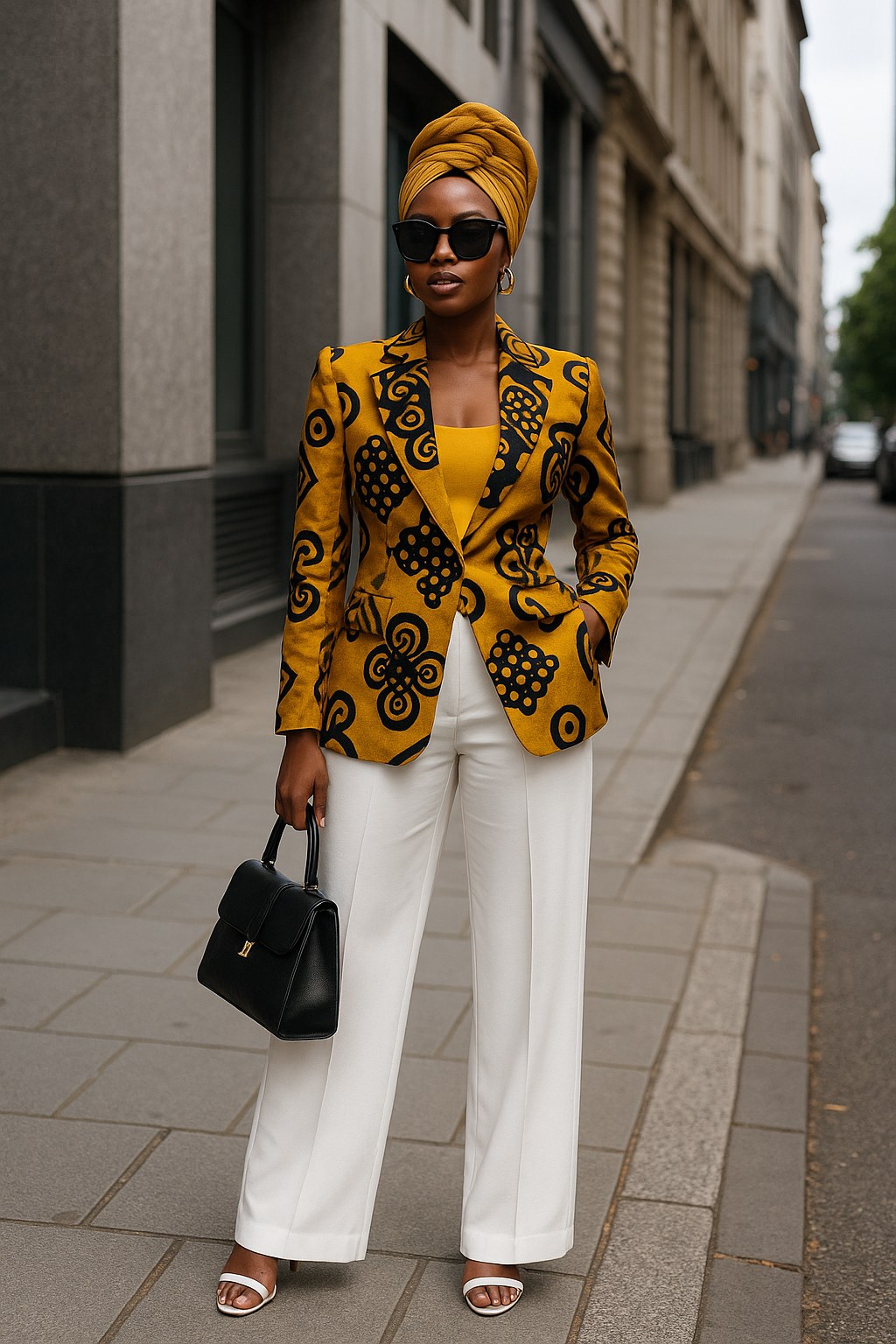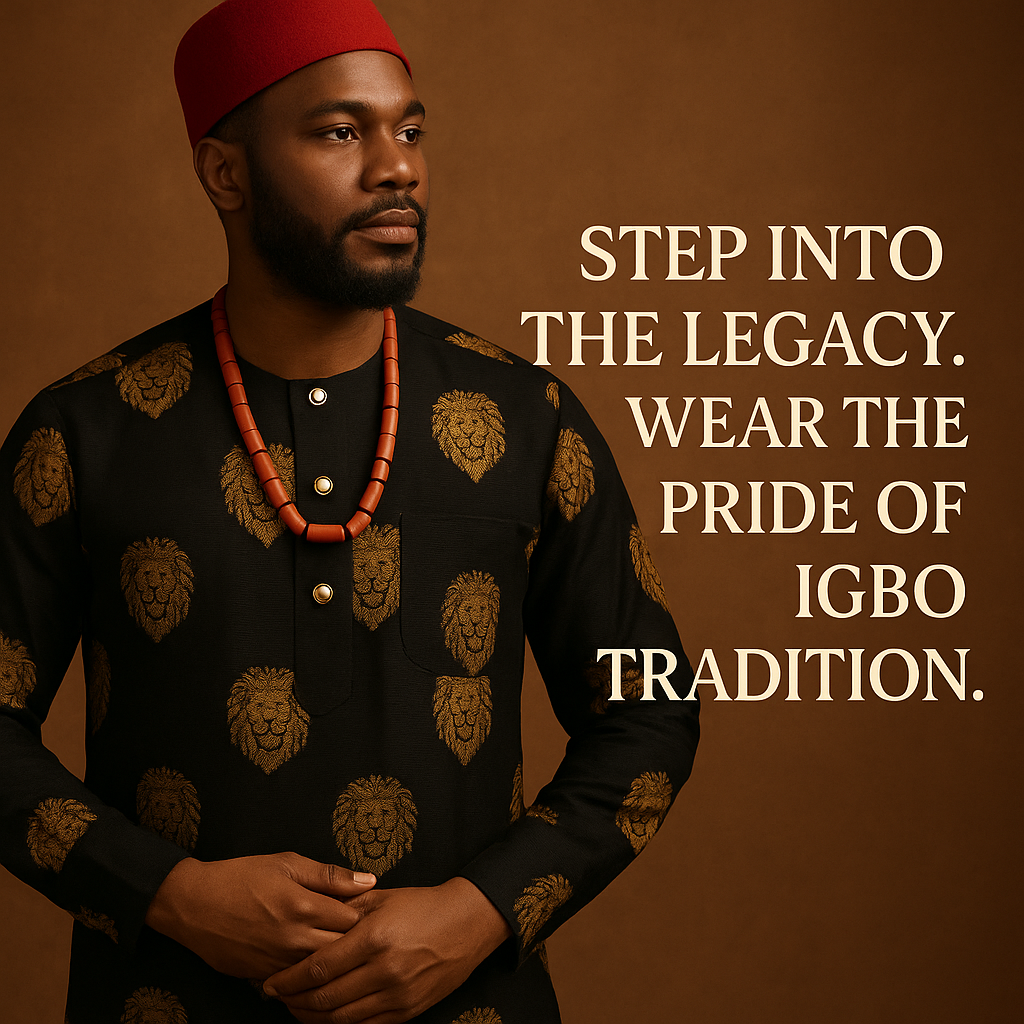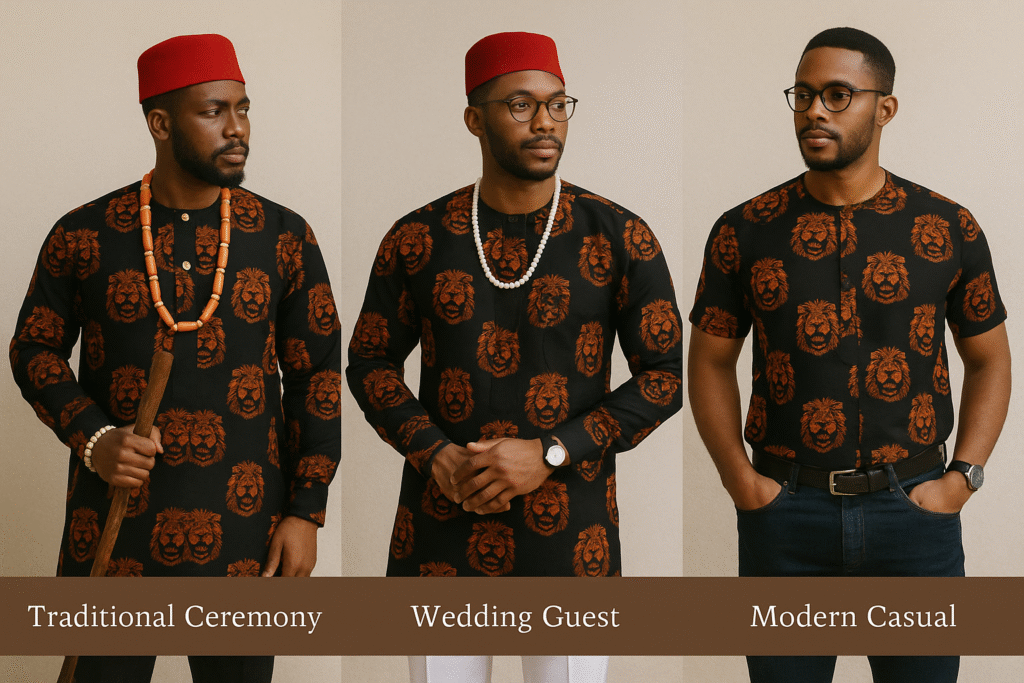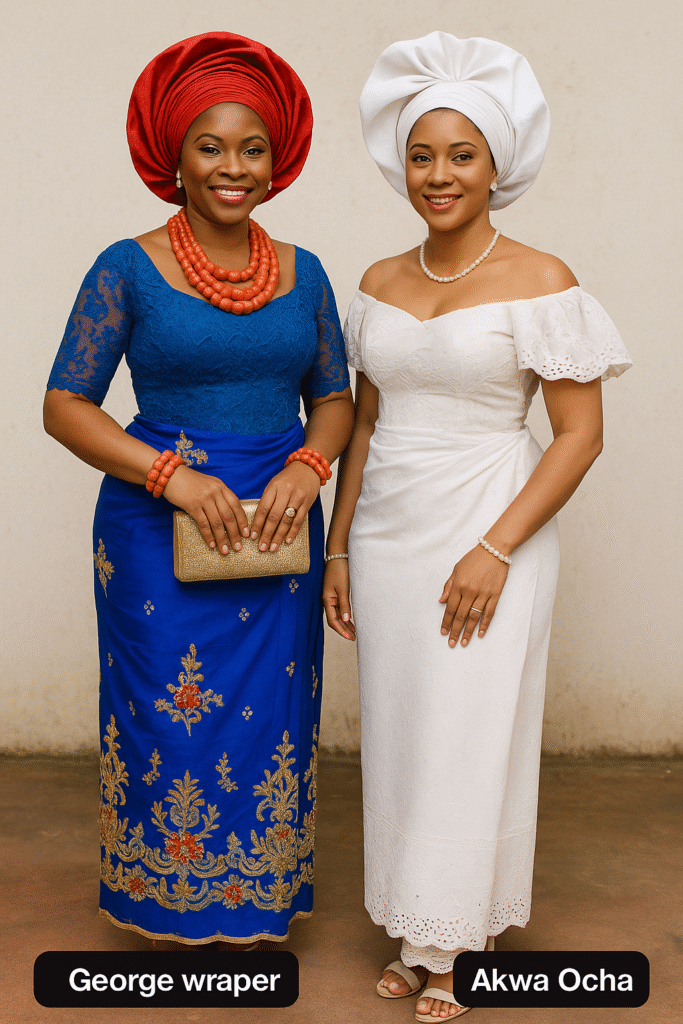


“The strength of the lion is not just in its roar, but in its presence.” These were the words my father spoke as he wrapped the Isi Agu cloth around his shoulders, fastening the buttons with deliberate pride. I watched him in awe, as I always did, every time he prepared for a community gathering or a celebration.
The Isi Agu, which means “Lion’s Head,” is not just fabric—it is the soul of Igbo heritage. Worn traditionally by chiefs, elders, and dignitaries, it is a symbol of strength, authority, and cultural pride. My father would say, “When you wear the Isi Agu, you are not just representing yourself; you are carrying the spirit of your ancestors, the pride of your people, and the legacy of those who came before you.”
The first time I saw a sea of Isi Agu was during the Ofala Festival—a time when the Igbo people come together to honour their king, the Obi. The air was thick with drumbeats, laughter, and the aroma of roasted yams and spicy jollof rice. Men in their regal Isi Agu tops, embroidered with lion motifs, walked tall, their heads crowned with the iconic Red Cap (Okpu Agu) that symbolizes honour and respect.
The Red Cap is not just an accessory; it is a crown of legacy. To wear it is to accept responsibility, to stand for tradition, and to protect the pride of the community. I remember my grandfather whispering to me during the festival, “When you wear this cap, you speak for your people.” His hands, old and strong, adjusted the cap on my head, and for the first time, I felt the weight of history on my shoulders.
What makes Isi Agu truly remarkable is its craftsmanship. Each garment is carefully embroidered with lion head designs that symbolize bravery and power. The fabric is thick, rich in texture, and durable—built to last generations, just like the legacy it represents.

I recall visiting the Nsukka market with my father to purchase new fabric for his friend’s chieftaincy ceremony. The vendor, an elderly woman with eyes that glimmered with wisdom, unrolled a bolt of Isi Agu, the lion’s head patterns gleaming under the sunlight. She smiled and said, “This is not just fabric; it is a mark of pride. When you wear it, you wear your story.”
Igbo women are not left out of this tradition. For grand occasions, they are dressed in Akwa Ocha or George Wrappers, adorned with delicate lace blouses and coral beads. The women of my family would gather hours before any big event, their laughter filling the room as they tied each other’s head wraps (Ichafu) and adjusted the layers of their wrappers.
The ceremony of dressing up was sacred. My mother would hand me a string of waist beads, whispering, “These are not just decorations; they are our secrets, our strength.” I wore them with pride, knowing that I was part of something much larger than myself.
There is a special tradition in my family where the first Isi Agu is gifted during the Iwa Akwa ceremony—a coming-of-age celebration for young Igbo men. My turn came on my 18th birthday. My father handed me a beautifully embroidered Isi Agu and placed the red cap upon my head. He said, “Today, you are not just my son; you are a man of the Igbo tribe. Wear this with pride, and always walk tall.”
That day, I walked through the community square, shoulders back and head high. The elders nodded approvingly, the women smiled proudly, and for the first time, I understood the weight of legacy. The Isi Agu is more than attire; it is an inheritance.
At African Attire Online, we celebrate the majesty of Isi Agu with modern cuts and designs that respect its rich history while embracing contemporary fashion. Our collection includes:
Traditional Isi Agu Tunics — Hand-embroidered with authentic lion head patterns.
George Wrappers and Akwa Ocha — Beautifully designed for special occasions.
Okpu Agu Red Caps and Coral Beads — Crafted with elegance and cultural respect.
Wearing Isi Agu is more than fashion—it’s a proclamation of pride, a statement of legacy, and a tribute to those who came before us.

Subscribe to get special offers, free giveaways, and once-in-a-lifetime deals.